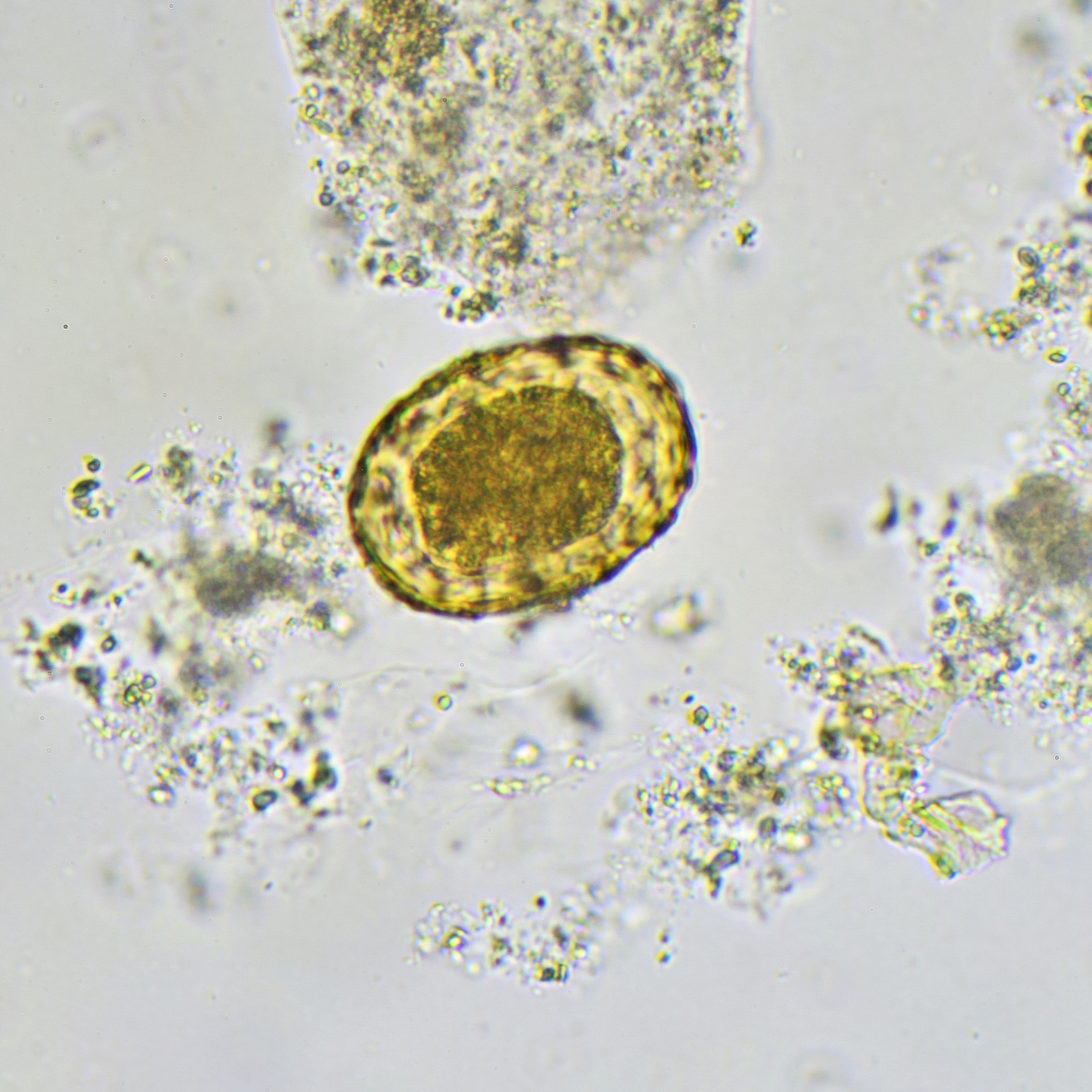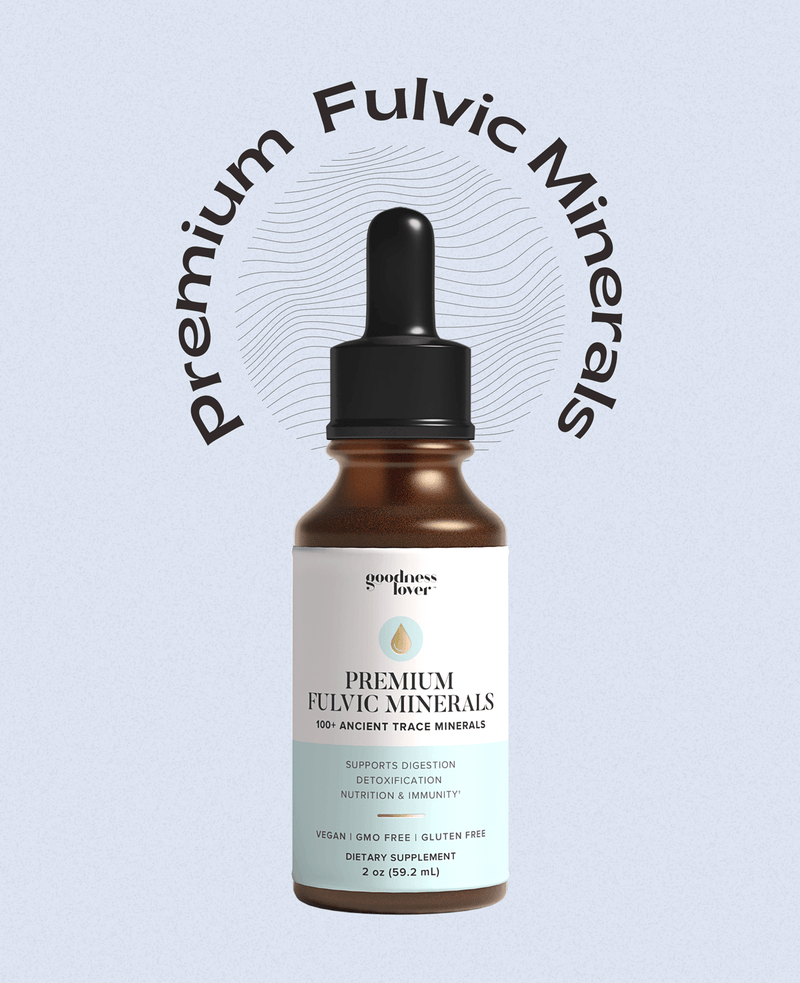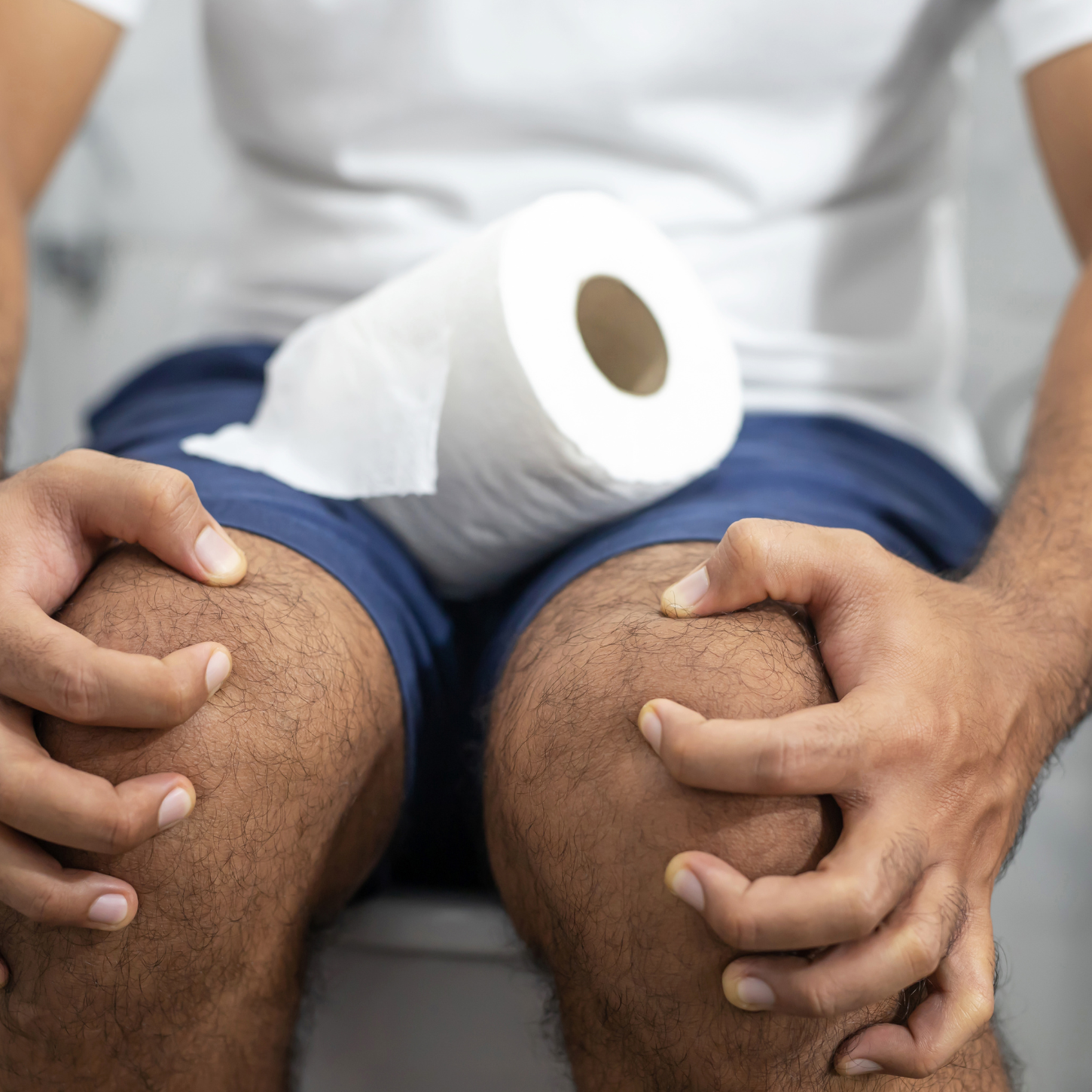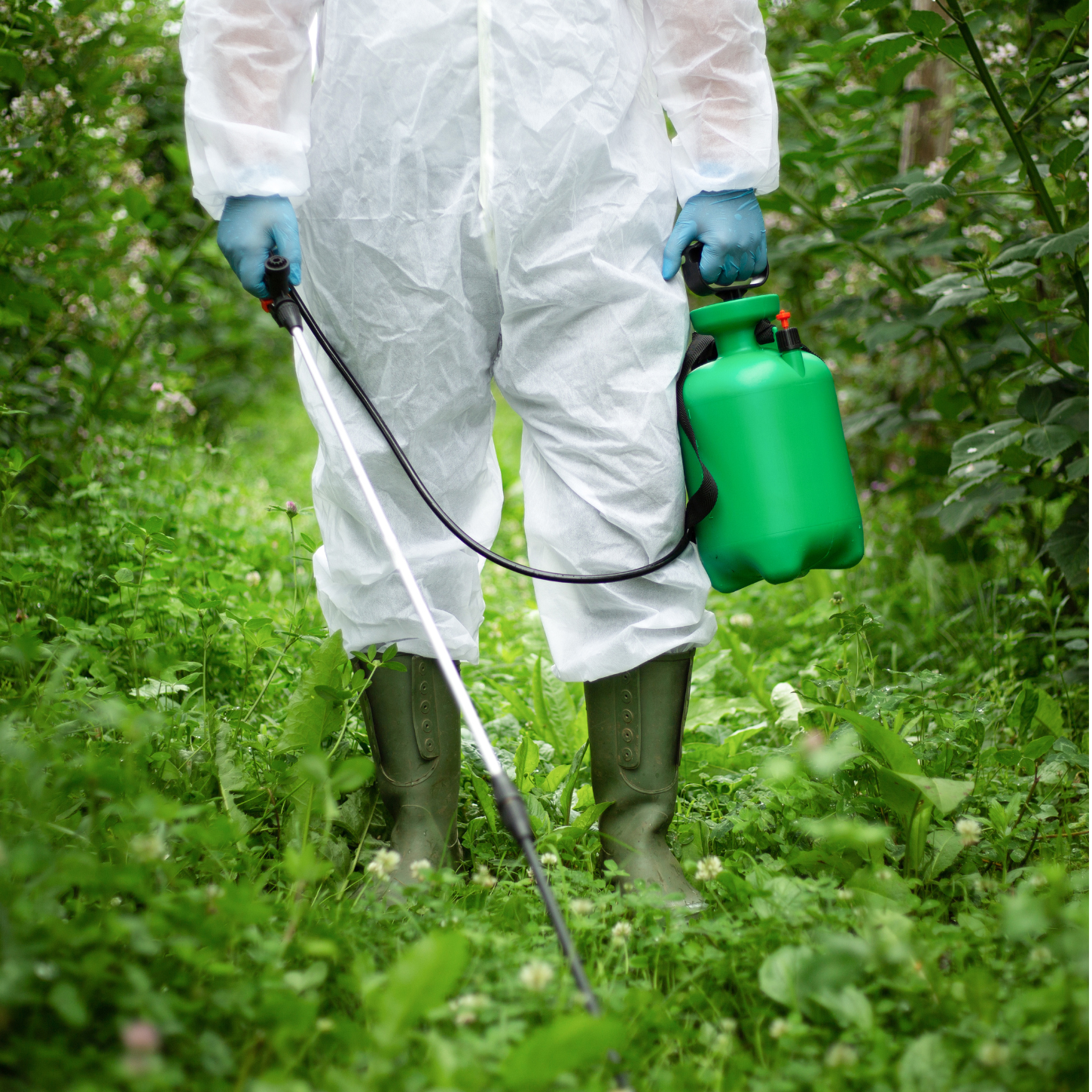Do you ever feel like there's something out of whack in your body, but you can't quite put your finger on it?
Do you spend hours googling your symptoms to leave you only feeling more confused about what could be going wrong?
A parasite (or two) may just be what’s up.
If you think your body may be entertaining some of these parasitic squatters, this article is for you.
It's time for you to take back control and uncover some answers, so gather ‘round because we've got some evicting to do.
Table of Contents:
What Are Parasites?
For millennia, infectious diseases have posed significant challenges to human populations, many of which are caused by helminth and protozoan parasites.
In fact, a staggering 25% of the known human infectious illnesses can be traced back to the helminths and protozoa, which make up the two primary types of intestinal parasites.
Intestinal parasites are often spread through contact with contaminated feces, soil, food, or water.
Contrary to popular belief, a parasitic infection doesn’t have to involve travelling far away and bringing back a “souvenir.” There are many different ways and places you can pick up a parasite, even in the developed world.
Over the past few decades, immunocompromised populations and increased life expectancy have, in part, led to an unwelcome comeback of these infectious diseases.
Types Of Parasites
Let’s have a look at the different types of parasitic squatters.
The common varieties that contribute to the global intestinal parasitic disease burden include Ascaris, Trichuris (affectionately known as Whipworm), hookworm, Entamoeba, Toxoplasma, Cyclospora, Giardia, and Cryptosporidium.
Ascaris is the most commonly reported at 20% with 807-1221 million infections globally. The areas it hits the hardest include East Asia, sub-Saharan Africa, and India. Whipworm and hookworm account for 604-795 and 576-740 million infections, respectively. These bad boys hang out in Sub-Saharan Africa and East Asia.
In the US, common helminth varieties include tapeworms, pinworms, and roundworms, while giardia and cryptosporidium top the list for protozoans.
And for some reason, parasites love to prey on children (probably something to do with their hygiene practices). Globally, an estimated 4-28% of children have pinworm infections.
Transmission
Hand-to-hand contact is the most common and direct way parasites spread. Food is also a major means they hitch a ride inside your body.
Research also reveals the unsanitary truth: everyday hygiene practices and contact with animals can spread parasites. Neglecting proper home cleanliness, inadequate bathroom habits, and having grubby nails are all ticket-punches for parasite transmission.
Vegetable and fruit-borne outbreaks of gastroenteritis are often associated with parasitic contamination, specifically of the Giardia and Ascaris varieties. Reusing waste-water, while it has its benefits, also increases the risk of parasitic contamination.
Other things that increase your risk for acquiring a parasite include:
-
Living in or visiting an area known to have parasite
-
International travel
-
Poor sanitation (for both food and water)
-
Poor hygiene
-
Age (children and the elderly are more likely to get infected)
-
Exposure to child and institutional care centers
-
Having a weakened immune system
-
HIV or AIDS
Why Treat Parasites?
While these parasitic trespassers may not always make known their presence, they can be the source of some serious threats to your health that you should be aware of.
Complications are not infrequent, and many cases end up requiring hospital care.
In many parts of the world, intestinal parasites wreak havoc on health and growth. They cause malnutrition, diarrhoea, blood loss, and immunity issues and can even stunt a person's development. This can cause various health and social problems in communities.
Parasitic infections are especially concerning in children as malnutrition can compromise their learning abilities as well as physical development.
Parasites can also cause seizures, blindness, infertility, kidney issues, heart failure, and even death. 
Signs And Symptoms
Parasitic infections can be sneaky little buggers; you may not even know that they’re around.
Unfortunately, many doctors are unfamiliar with parasitic infections, and many parasites go undetected and undiagnosed.
When they do make their presence known, symptoms can include the following:
-
Abdominal pain
-
Diarrhea or constipation
-
Nausea or vomiting
-
Gas or bloating
-
Loose stools with blood and/or mucus
-
Rash or itchiness around the rectum or vulva
-
Brain fog
-
Stomach pain
-
Fatigue
-
Weight loss
-
Passing a worm in your faeces
-
Poor tolerance of carbohydrates
-
Headaches
-
Not being able to process alcohol
Testing For Parasites
Trying to guess if you have a parasite problem is just a waste your time! This is not an area where you should guess. This is an area where you want definitive proof one way or another if you do in fact have parasites.
Most tests only give a positive or negative result for parasites, but it is important to know the quantity of parasites present - as you may have a low-level parasite infection that is not the cause of your digestion problem.
While the Faecal Multiplex PCR test is the standard test for diagnosis, the GI Map test gives the most precise analysis, as it shows how many parasites are detected.
Other tests that are used include:
-
The Scotch Tape
-
Complete Digestive Stool Analysis
-
Swab culture tests
Conventional Treatment
Battling an infection caused by parasites can be a real headache! The body's natural defences may already be low and the high levels of inflammation present create a cozy welcome for these pesky critters to take up residence.
If you go to your doctor to be treated, he/she will most likely prescribe you one or more of a series of medications including tinidazole, quinacrine hydrochloride, iodoquinol, metronidazole, and similar compounds.
These can come with some hefty strings (side effects) attached, so be warned.

Treating Parasites Holistically
Before you give up in ever getting rid of these uninvited guests, know that you can take back control with natural remedies. It may feel like an impossible mission, but it doesn’t have to be complicated.
Diet
To prevent a bunch of parasitic freeloaders living off your dinner plate, it’s important to stop fuelling them by steering clear of simple carbs and starches such as baked goods, frozen foods, fried foods, confectionary, salty foods like chips, white bread, rice, and pasta. Avoid alcohol too, which is also often high in sugar and can increase inflammation.
Instead of reaching for the refined carbs, load up your plate with carrots, sweet potatoes and squash to get your daily dose of beta-carotene - it'll turn into powerful Vitamin A in your body, which helps your body resist helminths.
Keeping track of which foods trigger digestive issues is also key - many people react adversely to gluten, dairy and eggs; so always be sure you know what your system's limits are.
Drink lots of water and increase your intake of high-fiber foods, as it's important to keep your digestion moving while you're doing a parasite cleanse. This includes veggies, fruits, whole grains, nuts and seeds, and potentially some herbs like psyllium.
Before chowing down on your meals, take a teaspoon of apple cider vinegar in water – this not only stimulates stomach acid for better nutrient absorption but it also acts as a shield against nasties like parasites!
Eat plenty of garlic, pumpkin seeds, pomegranate juice, and papaya seeds. Pumpkin seeds, especially, contain a compound called cucurbitacin, which helps to attack tapeworms and roundworms.
Specific supplements:
-
Selenium
Thanks to its anti-inflammatory, antioxidant, and pro-immune properties, selenium is an essential micronutrient that helps keep us protected from bacteria, viruses and parasites. Studies show its deficiency weakens our defences. To strengthen your immune system's fight against parasites, selenium is a powerful weapon to have in your arsenal.
Brazil nuts are the best source of selenium. Supplements usually include between 100-400 micrograms of selenium per dose.
-
Zinc
Another nutrient deficiency that lowers your body’s defence system against parasites is zinc.
Zinc helps to reduce your ammonia load as some parasites secrete high amounts of ammonia which can cause tissue and organ damage. It also promotes the normal functioning of your gut barrier.
Although zinc is found in a few plant foods, it is often bound to phytates, making it more difficult to absorb. Therefore, supplementation is often recommended. The standard recommended dose is approximately 20mg per day; however, a higher amount (up to 100 mg per day) may be required.
-
Vitamin C
One of the biggest immune superstars is vitamin C.
It enhances the activity of immune cells such as macrophages, lymphocytes, and natural killer cells, allowing the body to fight a parasitic infection more effectively.
Vitamin C also gives intracellular antioxidant defenders such as glutathione or catalase an added boost when times get rough - ensuring the enemy is kept firmly in check!
For Vitamin C, the upper limit for an oral dose is set by the “bowel tolerance”, above which the dose is not absorbed in the gut and causes a laxative effect. Typically, many individuals can tolerate 1000-3000 mg/day in divided oral doses, which can then maintain a relatively constant level of vitamin C in the bloodstream.
-
Probiotics
Probiotic foods and supplements act like a superhero in your gut, competing with unwanted pathogens and parasites. Not only that, they can help repair any damage caused by their unwelcome guests while increasing antioxidant capacity. Some probiotic strains have even shown the ability to destroy the parasite’s cellular architecture and preventing its proliferation and growth.
Strains that have shown the most action against parasitic infections include Lactobacillus, Saccharomyces boulardii, and Bifidobacteria.
-
N-acetyl-cysteine (NAC)
A potent antioxidant, NAC is like a knight in shining armor, protecting you from the toxins parasites release when they die off. It also helps to support your liver which is working hard due to the toxic waste. Studies have shown that NAC can also inhibit parasites by destroying their protective biofilms. Dosages of NAC are generally 600mg 1-3 times per day.
Herbal Remedies
Herbal medicines have long been used to fight off the nasty bacteria, fungi and parasites that can cause us all sorts of problems. While it's true that these ancient remedies can work wonders on nasty bacteria and fungi too, the real superstars of parasite-slaying include:
-
Thyme
-
Pau d’Arco
-
Garlic
-
Myrrh
-
Oregano
-
Wormwood
-
Black walnut
-
Clove
-
Berberine
It is important to talk to your healthcare practitioner before taking these herbs to ensure there are no contraindications or interactions with other medications you may be taking. It’s best to stay away from parasite cleanses if you're pregnant, nursing or have an ongoing medical condition - and don’t share them with the kiddos!
That’s A Wrap
The battle between human populations and infectious organisms is real. As new, crafty parasites are emerging at an ever-increasing rate, some even becoming drug-resistant, it's definitely a fight to the finish. While researchers are looking for new ways to combat them with drugs, it is becoming increasingly important that we focus on natural solutions in order to get the upper hand on this microbial battleground!
Recipe Spotlight: Acai & Mixed Berry Smoothie Bowl
This acai smoothie bowl is a powerhouse of fiber, antioxidants and heart healthy fats. The best thing about smoothie bowls is that you can add whatever toppings you like. Why not try:
- Cashews and cacao nibs for magnesium
- Sunflower seeds and sesame seeds for zinc
- Brazil nuts for selenium
- Chia seeds and hemp seeds for omega 3 fats
- Almonds and chia seeds for calcium
- Dried apricots and figs for iron
















What Do You Think? Comment Below: